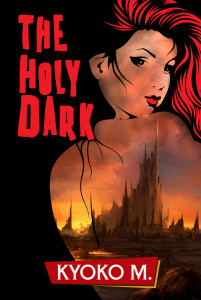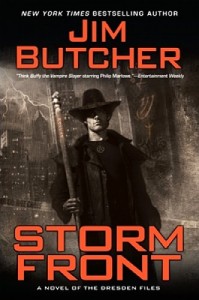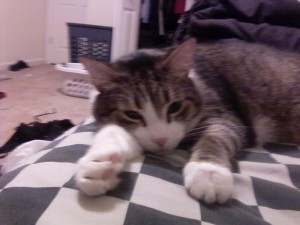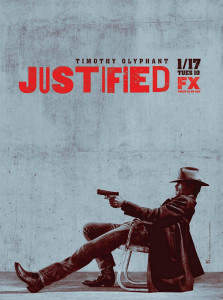
If you’re not watching Justified, you need to reevaluate your life goals. It is by far one of the best, most consistently good shows on television, and after six awesome seasons (including the one starting this week), it’s finally saying goodbye. For that reason, I’m pouring one out to my long-legged, drawling, whip-smart, deathly sarcastic, eternally troubled badass modern cowboy, Marshal Raylan Givens.
First, a brief introduction: Justified tells the tale of Raylan (Timothy Olyphant), a Kentucky-born U.S. marshal who is a living, breathing modern cowboy. He was chasing down criminals in Florida before he faced off with a crime boss in a crowded restaurant. The crime boss pulled his gun and Raylan shot him in full view of the public, prompting a huge investigation that got him into so much trouble he was reassigned to his hometown. Harlan County, the area where his new jurisdiction covers, is absolutely teeming with all kinds of criminals from prostitution rings to drug dealers. Raylan is put under the supervision of Art Mullen (Nick Searchy), and works alongside fellow Marshals Rachel Brooks (Erica Tazel) and Tim Gutterson (Jacob Pitt), whom he has friction with at first but they soon get along.
Meanwhile, things start to get heated when Boyd Crowder (Walt Goggins) blows up a church and makes trouble for his former brother’s wife, Ava Crowder (Joelle Carter) when he finds out she killed him with a shotgun in his own home. Raylan and Boyd grew up together as teenagers, so Raylan is assigned to get him under control, kill him, or bring him in. Raylan’s life also gets even more tangled up as he crosses paths with his former wife Winona (Natalie Zea), a court stenographer, who remarried but they both still show signs of being attracted to each other.
Sound juicy enough for ya? Well, let’s dive in. Spoilers ahead, as always.
Sharp dialogue can be the most effective way to get your work noticed. Justified has a lot of unique things going for it, but what I’ve always considered to be this show’s most valuable asset is the dialogue. The stuff that comes out of these characters’ mouths is nothing short of genius. When Raylan, Art, Rachel, and Tim get in a room together, you don’t need violent criminals to have a good time. These four engage in the most intensely awesome snarkfests you will see in your natural born life. The relationships they’ve built over the years make for some of the best scenes you have the privilege of watching, especially Art and Raylan, who are equally exasperated with each other but still see the value of one another. If you need the highlights, check out the Crowning Moment of Funny page on Tvtropes.
It’s more than just humor, though. Justified has made a name for itself by carving out beautifully intricate characters through words alone. Boyd Crowder would be just like any other drug dealing crime boss if it weren’t for that legendary silver tongue and trademark drawl. He’s constantly cool under pressure and unlike 80% of the criminal underbelly of Harlan county, he uses his brain to get out of scrapes more than he uses a gun.
Similarly, Raylan’s biggest asset is that he just flat out pays attention and listens to the things around him. That is why he’s such an unbelievable marshal who nearly always gets his man. He knows how to manipulate bad guys and how to either talk them down or trick them into giving him the info he needs.
This is tricky for writers. Every author, and aspiring author, has strengths and weaknesses. Some of us are awesome at dialogue. Others are awesome at descriptions, diction, spinning whimsical plots, or creating imaginative worlds. Stick to what you’re good at, but also remember that great dialogue from your characters can set them apart, whether it’s humorous or poignant or terrifying or heartwarming. It also adds extra layers to their personality if they have a particular speech pattern or a quirk, like how in my series Belial insists on calling Jordan “my pet” just to work her nerve, and gives these grand overblown Hannibal Lecter-esque speeches just because he likes the sound of his own voice. Make the words coming out of their mouths matter and make them work for you, not against you.
Know the durability of your villains. One of the things that I’ve always loved about Justified is that they always pick a season-long villain to antagonize the marshals. This is a brilliant tactic because it allows us to get the full scope of someone without allowing them to drag along forever like Percy from Nikita or Abbadon from Supernatural. We get to see what kind of threat the villains present, why they need to be stopped, what their strengths and weaknesses are, and what their hubris is if they have one (which they typically do because they are human.)
My personal favorite villain thus far has been Mags Bennett (Margo Martindale) because for me, she’s the most layered and three-dimensional villain of the show. Mags actually had good sides to her, even though we find out she’s incredibly ruthless and scary. Hell, Mags was so amazing the role won Martindale an Emmy, and for good reason. She was expertly used and executed, and by far the best female character in the show’s entire run.
Conversely, Justified is a bit guilty of overusing their villains too. Dickie Bennett (Jeremy Davies), Mags’ wretched son, is still alive and kicking when he wore out his welcome by the end of season two. He’s a despicable coward, but yet he’s somehow managed to hold on to his life despite Raylan having every single reason to wipe that slime off the face of the earth. Thankfully, though, Dickie was downgraded to a minor character in the recent seasons, so while his presence still induces headaches, it’s tolerable.
Managing your villains properly is a hard trick to master as an author. You can’t look at it on a case-by-case basis. You have to unfurl your villain like a scroll and consider both the short and long term effects of their presence in the narrative. If you make their presence too short, then readers question why they were there in the first place. If you make their presence too long, then readers can get fatigued with them. I can freely admit one of the biggest struggles in writing the upcoming Black Parade novel The Holy Dark is that I had a villain who just wouldn’t fall into the category of major or minor character. It took me forever to figure it out because there were so many possibilities. It’s important to remember that nothing bogs a story down faster than a boring impervious villain who lasts longer than they should. You have to know when to fold ‘em.
Make your characters earn their keep. Alright, I’m going to get a little salty for this lesson—I f*@king hate Ava Crowder. I won’t launch into my 3,000 word essay about why, but if you’re curious enough, watch the following video (skip ahead to 12:35). I’m sure people would debate with me why she’s supposedly a good character, but the number one reason I can’t stand Ava is because she isn’t an independent character who pulls her own weight. Almost everything in this show just conveniently gets Ava out of a fix rather than her getting herself out of her own problems.
For instance, her introduction is killing Boyd’s brother with a shotgun after years of abuse. Look, fine, I understand that because domestic violence is pretty much the worst, but he was an unarmed man sitting at a dinner table eating and she shot him. In damn near any other case, Ava’s ass would have gone to jail, but no, she doesn’t. She gets off scot-free, which irritated me when I began the show, but I let it slide with the hope that she would give me a definitive reason why she was taking up time on my TV screen. She then enters a borderline creepy relationship with Boyd, which again annoyed me but whatever she clearly had bad taste in men to begin with, but what tears it is that Ava is basically just coasting off of Boyd’s reputation. She’s his lackey, except she gets to sleep with him and pretend that she’s his lieutenant. They keep up this disgustingly long pretense of being in love and wanting to buy a home and get married until finally the season four finale has Ava being apprehended in possession of a dead body and she’s sent to jail. Finally, Ava will prove she’s worth a damn, right?
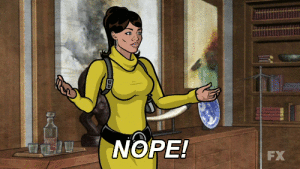
Ava gets in jail and immediately gets help from Boyd, even though it later backfires. Then she gets mad that he can’t find a way to help her, so she breaks up with him and starts to learn the pecking order in the prison. It turns out they have a drug ring inside the prison and the guards are in on it in exchange for sex. The girls play along, but Ava—who is such a hypocrite because she ran a whorehouse herself before getting in jail—is too good to trade sex for status and rebuffs a guard. She tries to make a deal with the local nurse to get the product in and out of the jailhouse, but the guard she rejected frames her for attacking him. She is later saved by someone Boyd hired to watch over her. Then, Ava decides to take out the head of the drug ring so she can be the queen bee and it turns out it’s some elderly woman. And they get in a fight. And the elderly woman kicks Ava’s ass for a while before she finally stabs her to death. The woman’s followers suspect Ava and she’s all but tied her own noose because half the prison now wants her dead.
And then the entire season-long subplot is rendered pointless because Raylan gets her out of jail so she can tattle on Boyd to finally send him up the river. That’s right. After an entire season of her skating by on pure dumb luck, she is Deus Ex Machina’d out of trouble. Yep.
There is little worse than making someone a main character and then letting them constantly get away with everything with few relevant consequences. People are flawed, yes, but bailing a character out over and over again is the quickest way to make your readers dislike them. Not everyone needs to be a badass, but they all need to earn their keep and solve as many problems as they create. This is part of what authors mean when they say “kill your darlings.” It refers to more than getting rid of pieces of your work that you like but isn’t relevant to the overall story. It means push your characters off that pedestal they are on and force them to be worth your readers’ time. You can’t babysit them. Make them matter.
Don’t forget to just plain have fun. I am about to introduce the most brilliant moment ever put to television thanks to Justified. If you take nothing else away from this blog post, then you must do me the one favor of indulging me while I set up the best scene in the entire series, and in any series if you ask me.
In our fifth season, we’re introduced to Dewey Crowe’s family—a bunch of horrible, ignorant, slimy, back-stabbing guttersnipes who come up from Florida after they find out Dewey has come into some money thanks to suing the marshal service (long story.) They pressure and bully Dewey into sharing the wealth, and in doing so, cross Raylan and the marshals’ paths as they try to get a foothold on the crime syndicate in Harlan county. The Crowes are led by Darryl Crowe (Michael Rappaport), and consist of his sister Wendy (Alicia Witt) and his unbelievably stupid brother Danny (A.J Buckley).
Danny has been an incredible thorn in the side of everyone he meets for just being stupid as a bucket of shrimp, a coward, and a bully all in one. He bullies Wendy’s son, Kendal, in front of one of their dangerous allies Jean Baptiste (Edi Gathegi), who challenges him to either leave the kid alone or face off with him. Danny shoots him in the back and then threatens to kill Kendal if he tells anyone, and then tries to kill Kendal after he accidentally lets Danny’s beloved pit bull run off and get hit by a car.
At the end of the season, Raylan finally tracks Danny down to try and get him to lead him to Darryl. Danny decides to have a showdown with sharpshooter Raylan by setting up the 21-foot rule, a legend where a person with a knife is good enough to take someone with a gun within 21 steps of each other.
The result is the most glorious thing ever created ever. Please enjoy.
Reportedly, this scene was so amazing that Timothy Olyphant himself simply could not stop laughing in between takes because it is by far the most satisfying villain death ever made. When this happened live, my mother and I both jumped straight up off the couch and gave it a standing ovation for over a minute. You just have to have fun when opportunities like this present themselves. Justified went for it and they knocked it straight out of the park. True, you do need a bit more context to fully appreciate why the aforementioned scene is perfection, but nothing beats just having fun in your work.
No matter what the genre, it’s important to have fun with your writing. You have to love it. You have to put yourself inside it and make your readers turn those pages, the way that Justified is so good it practically demands me to watch it. Be audacious. Be bold. Do risky things or edgy things and make the pay off so great that people are excited to share it with each other. Even if you’re not Stephen King, you have the ability to gain readership by making your work an experience they cannot get elsewhere.
I’m super nervous about how Justified will end—after all, this is FX we’re talking about and they don’t pull their punches—but I’m so glad for the ride. It truly has been a show that no one can touch. It has its own voice and style and I will miss it sorely after it’s gone. If you’re curious, tune in Tuesdays at 10 o’clock pm EST. See you, cowboy.
